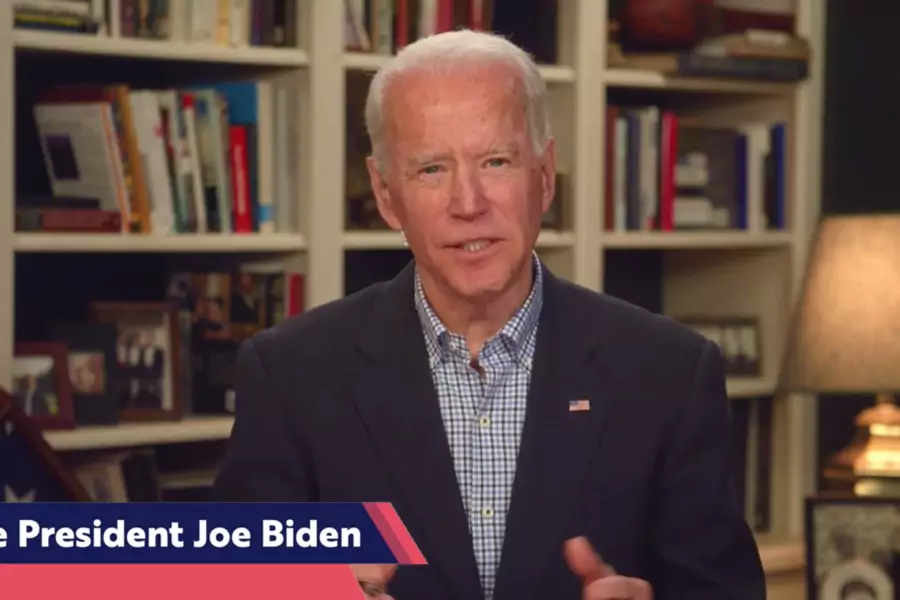Campaign Foreign Policy Roundup: Campaigning Amid a Pandemic

The coronavirus pandemic has knocked the Democratic presidential primary race, like much of everything else in American life, to the sidelines. Both Joe Biden and Bernie Sanders have halted all public campaign events, cancelled their fundraising dinners, and stopped holding in-person press conferences. They have turned instead to livestreaming, virtual rallies, videos, and tweets. Not surprisingly, few of these virtual efforts have targeted foreign policy, further indicating the small role that events overseas play in presidential elections. So while a senior Biden advisor was right in saying that “this election is really, really, really different,” in one important way it looks to be very much the same.
The Candidates in Their Own Words
Both Biden and Sanders called on President Trump to use the full force of the Defense Production Act, originally passed during the Korean War, to boost the manufacturing of medical supplies. In remarks streamed from his basement on Monday, Biden complained:
Trump keeps saying he’s a wartime president. Well, start to act like one. To paraphrase a frustrated President Lincoln writing to an inactive General McClellan during the Civil War, quote, “If you don't want to use the army, may I borrow it?” end quote.
More on:
Sanders was less colorful, tweeting:
The president must immediately and forcefully use the Defense Production Act to direct manufacturers to produce all of the personal protective equipment, ventilators, and other medical supplies that we need to get through this crisis.
— Bernie Sanders (@BernieSanders) March 21, 2020
Sanders also joined a number of other lawmakers in signing a letter sent to Treasury Secretary Steven Mnuchin on Tuesday calling for the United States to ease sanctions on Iran in the midst of the coronavirus pandemic:
Rather than continue to pile on sanctions in the Iranian people’s hour of need, we urge you to substantially suspend sanctions on Iran in a humanitarian gesture to the Iranian people to better enable them to fight the virus.
The Trump administration shows no signs that it will ease up on its “maximum pressure” strategy against Iran even in the face of the pandemic. The administration has offered Iran unspecific aid to combat the coronavirus, an offer the Iranians have dismissed.
What the Pundits Are Saying
The Washington Post’s Josh Rogin spoke to Biden’s senior advisor Anthony Blinken, a former deputy secretary of state. Blinken criticized the Trump administration for failing to take a global leadership role in confronting the pandemic, saying that “The Trump administration is totally AWOL when it comes to the international dimension of this crisis.…That we are AWOL is a huge detriment to us, not just to some abstract definition of global leadership.”
Hussein Ibish, a senior resident scholar at the Arab Gulf States Institute, assessed what Biden’s Middle East policy might look like. Ibish concluded that “the track record appears to point towards a fundamentally cautious approach, but, until they are in office, it is hard to know how anyone will approach momentous choices like the use of force.”
More on:
Campaign Updates
The Sanders campaign said on Tuesday that the Vermont senator planned to participate in an April debate, if there is one. The Democratic National Committee has yet to put a date on the calendar and may never get around to scheduling what would be the twelfth debate. Biden said on Wednesday that “we’ve had enough debates.”
Sanders won the Democrats Abroad primary, which ran from March 3 to March 10. He picked up nine of the thirteen delegates up for grabs. That still leaves him, as of this afternoon, three hundred delegates behind Biden.
Thirteen states and Puerto Rico have postponed their primaries because of the coronavirus. The next in-person primary looks to be Wisconsin on April 7. Wisconsin Governor Tony Evers has so far dismissed calls to postpone the election, noting that a range of state offices are also up for grabs that day. The terms for some of those offices start later in April. The next primary after that is set to be New York on April 28. Don’t be surprised if the New York vote gets pushed back to June 23. That’s when the state is scheduled to hold primaries for state and congressional office.
There are 108 days until the planned start of the Democratic National Convention and 150 days until the Republican National Convention. We are 221 days out from Election Day.
Margaret Gach assisted in the preparation of this post.
 Online Store
Online Store
